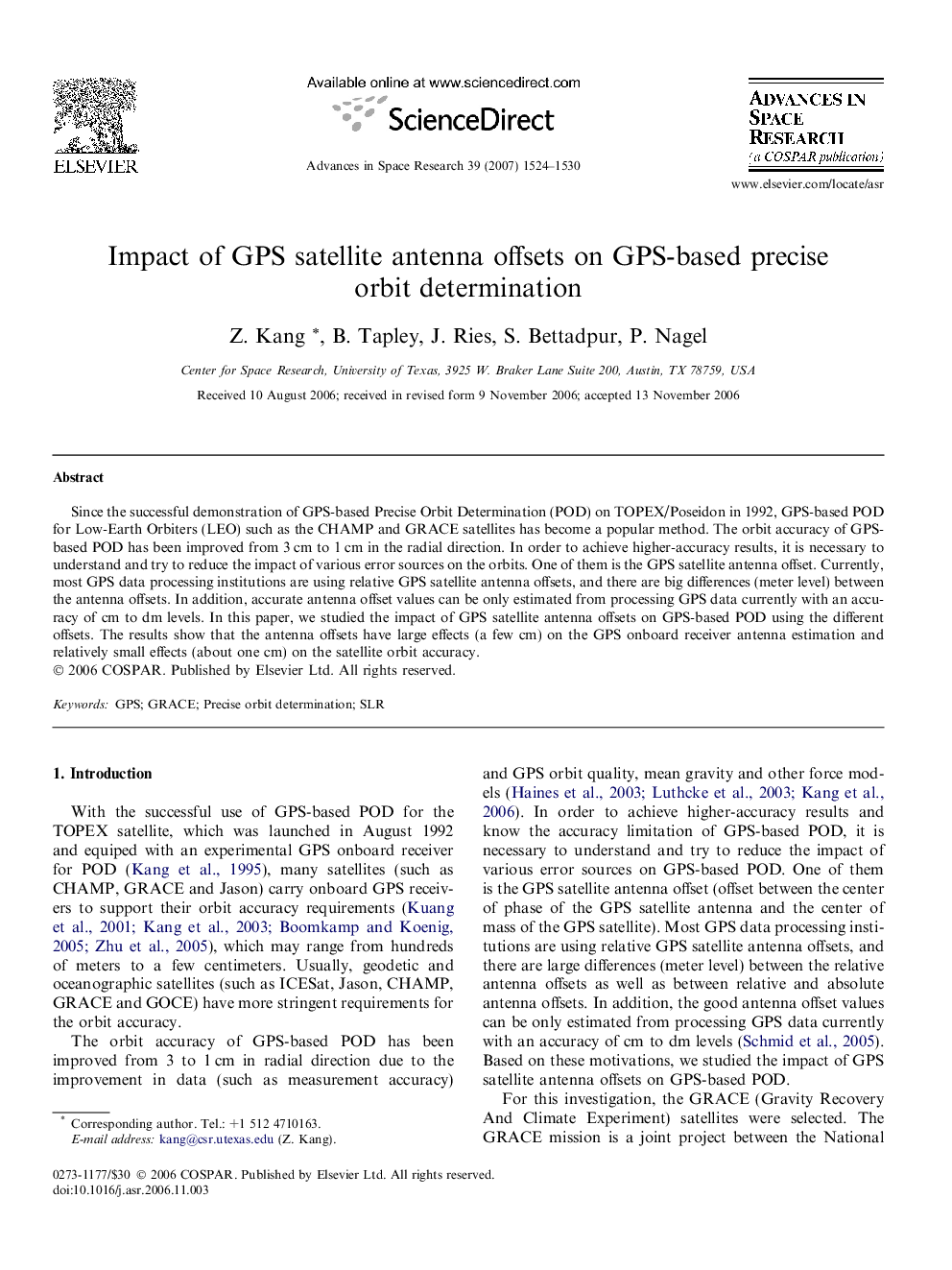| Article ID | Journal | Published Year | Pages | File Type |
|---|---|---|---|---|
| 1768893 | Advances in Space Research | 2007 | 7 Pages |
Since the successful demonstration of GPS-based Precise Orbit Determination (POD) on TOPEX/Poseidon in 1992, GPS-based POD for Low-Earth Orbiters (LEO) such as the CHAMP and GRACE satellites has become a popular method. The orbit accuracy of GPS-based POD has been improved from 3 cm to 1 cm in the radial direction. In order to achieve higher-accuracy results, it is necessary to understand and try to reduce the impact of various error sources on the orbits. One of them is the GPS satellite antenna offset. Currently, most GPS data processing institutions are using relative GPS satellite antenna offsets, and there are big differences (meter level) between the antenna offsets. In addition, accurate antenna offset values can be only estimated from processing GPS data currently with an accuracy of cm to dm levels. In this paper, we studied the impact of GPS satellite antenna offsets on GPS-based POD using the different offsets. The results show that the antenna offsets have large effects (a few cm) on the GPS onboard receiver antenna estimation and relatively small effects (about one cm) on the satellite orbit accuracy.
